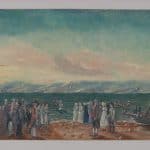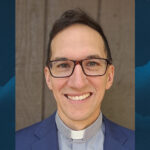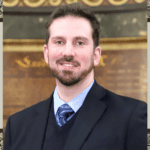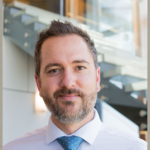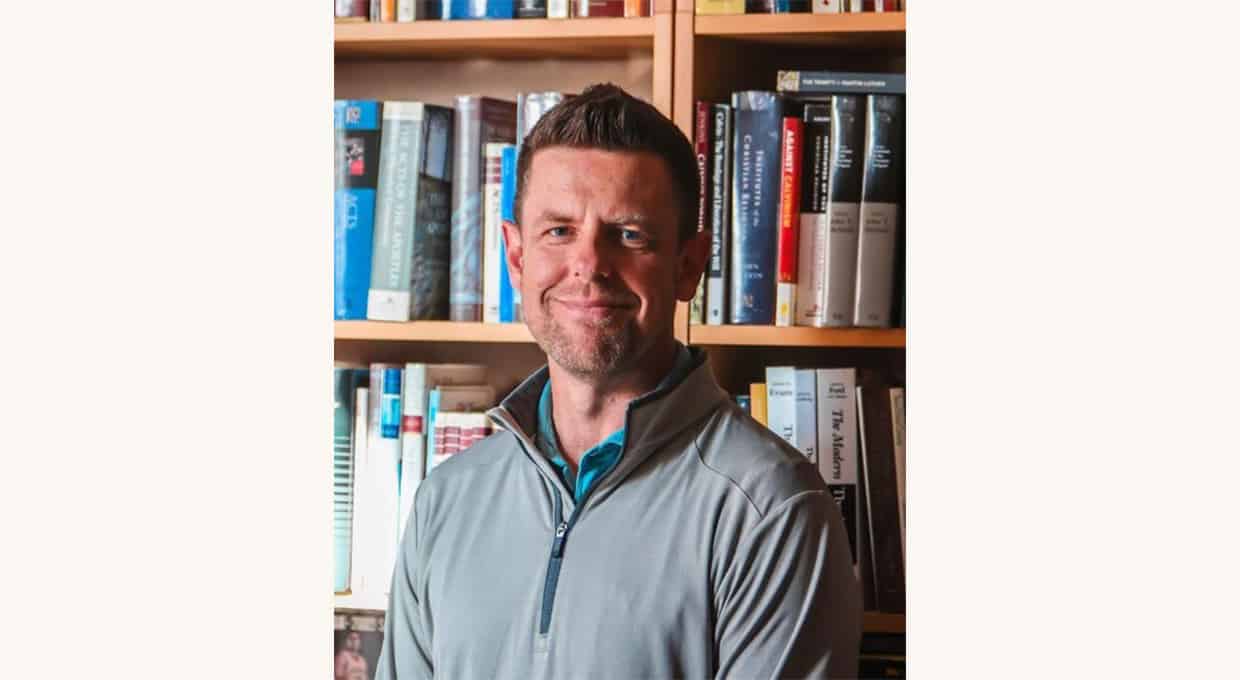
What does it mean to be born again? While there are many opinions about the term—and many use it without a clear definition—our theological forebears had much to say on the topic. In Born Again, Sean McGever interacts with two of the earliest and most prolific writers on the subject of conversion: George Whitefield and John Wesley. In this interview, we ask McGever about how Wesley and Whitefield help us understand what it means to be born again.
Lexham Press: Tell us a little about yourself and how this book came to be.
Sean McGever: Many people consider themselves “born again” (myself included). Born Again explores the theology and history of early evangelicals who, about three hundred years ago, provided the foundational evangelical theology of conversion—but many of us don’t fully understand it.
I work for an evangelistic organization called Young Life. As a part of our training, we are encouraged to pursue part‐time graduate studies. I took this opportunity to the extreme. After completing an MDiv, I began traveling to the University of Saint Andrews (Scotland) where I undertook an MLitt. During my time there I wrote a dissertation on the gospel proclamation as found in 1 Cor. 15, the Rule of Faith, and the Creed. I was very interested in the early church’s proclamation of the gospel, especially to those who were not Christians. This led to a PhD at the University of Aberdeen that provided the material for Born Again. Along the way Todd Hains and Jesse Meyers at Lexham took an interest in my research.
I’m excited that this material will be available not only for scholars and academic theologians, but also for pastors and those involved in evangelism (like myself). I think a deep look into Wesley and Whitefield has a lot to offer anyone engaged with the gospel.
LP: What is your elevator pitch on this book and what you’re trying to accomplish?
McGever: Born Again is the first in‐depth look at the theology of conversion for early evangelicalism. Evangelicals stand on the shoulders of John Wesley and George Whitefield whether they know it or not. My research declares a point of origin for evangelical conversion against which subsequent eras of evangelicalism can compare, contrast, or argue against. I think there is a vivid and stark moment in evangelical history today which begs for this analysis (something I do briefly in my final chapter).
LP: Why did you choose to compare Whitefield and Wesley on conversion?
McGever: Quite honestly, I chose Wesley and Whitefield because they were the earliest English‐speaking people to profoundly influence the evangelical proclamation of the gospel among English speakers today. I was advised by my supervisor at Saint Andrews, Dr. Steven Holmes, to study Wesley and Whitefield for a PhD. This led me to work with Professor Tom Greggs at the University of Aberdeen which was a fantastic, challenging, and rewarding experience.
LP: How familiar were you with Whitefield and Wesley before beginning this study and did anything surprise you on your journey?
McGever: Apart from my church history classes in seminary, I was not very familiar with Whitefield and Wesley prior to my formal research on them. In fact, last year I went through an old box of papers from my seminary days and found a research paper I wrote on Whitefield that I had completely forgotten about.
My journey did surprise me in many ways. My personal faith journey was a bit of an evangelical mutt; I had little experience with the theological traditions of Whitefield and Wesley. My Young Life office was in a friendly local Methodist church for over a decade. When I began reading through Wesley’s sermons, letters, and diaries my heart raced with excitement; I discovered much personal affinity with Wesley’s thoughtful and active engagement in evangelism and discipleship. I sadly did not see this in the activity of the local Methodist church where I had my office. During my research I scoured the library and closets of the church and found virtually no writings by John Wesley—besides those in my office! I tried to introduce the minister at the time to Wesley’s writings. I know this is not the case of every modern Methodist church, I have come to know many Methodists who engage John Wesley’s teaching in amazing ways.
During my research the church plant we were a part of closed. This led us to visiting our friend’s church, which happened to be Anglican. Little did I know that my studies of Wesley and Whitefield’s Church of England and my own church life would align.
LP: How is your study relevant for the church today?
McGever: I believe that the church today needs recalibration and reassessment on the trajectory, or sometimes what I call the ‘vector,’ of conversion. The church and its members need to ask what we are aiming at. Wesley and Whitefield were not singularly concerned with the new birth alone; their conception of the new birth, or being born again, could not be separated from the ongoing life of faith. The ongoing restoration of the image of God in the life of the believer, and, thus, collectively as the body of Christ in the church, was essential to their vision for evangelism.
The church today far too often misunderstands ministry as a two‐stage endeavor: evangelism and (then) discipleship. Wesley and Whitefield did not understand it that way. Evangelism, for them, was an invitation into discipleship. Much of evangelism in the church today invites people into a Christendom without telling them the purpose for which Christendom exists (hint: it doesn’t exist for “me”).
LP: Who should read Born Again and what would you hope they get from it?
McGever: I expect theologians and historians of evangelicalism, Wesley, Whitefield, Calvinism, and Methodism to read Born Again. Born Again is the first in‐depth look at the theology of conversion for Wesley, Whitefield, and, as I mentioned before, for early evangelicalism.
I hope that Reformed friends will read Born Again to explore the man who—I would argue—is the most prominent Reformed evangelist of all‐time: George Whitefield. For those already familiar with Whitefield, you will be surprised how much he aligns with Wesley’s soteriology. I hope that Methodists will read Born Again and be drawn afresh to the theology and ministry of John Wesley. I hope that evangelicals will read Born Again and recognize how modern evangelical theology and practice has changed since its early days.


